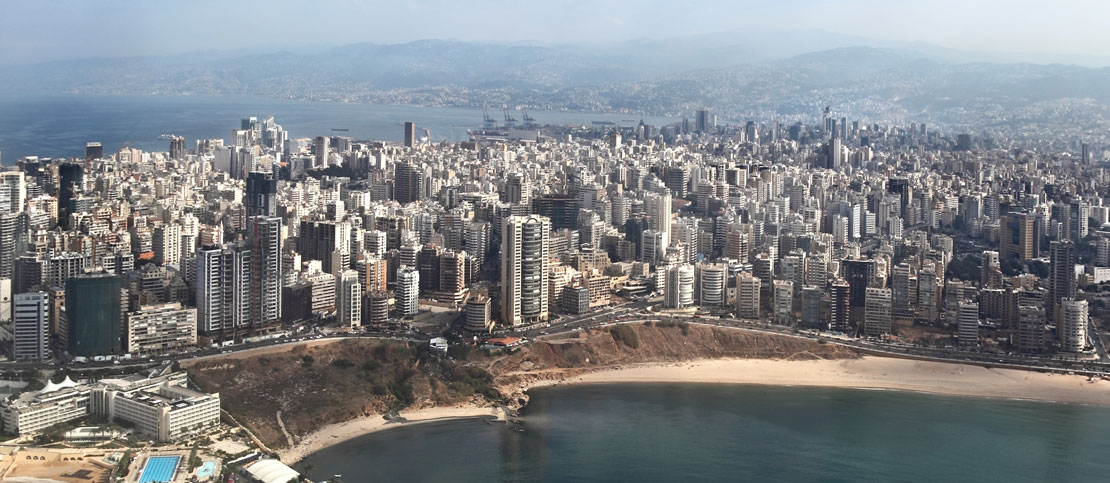For Palestinian citizens of Israel, especially those from the Haifa area, Beirut holds near mythical stature. The two cities share near-identical Arabic dialects, cuisine and the cultural elements, and just a few decades ago traveling between them would have been a mere two-hour drive. Today that is almost unimaginable
That disconnection between the Arab Palestinian citizens of Israel, or “’48 Palestinians” as they are sometimes called, and the wider Arab world has been a source of pain and resentment ever since the borders slammed shut in 1948. The majority of Palestinians were locked outside, but over 1 million live in Israel today.
“Who gave anyone permission to separate us from our natural environment,” Maisan Hamdan poses to me when we meet in Haifa a few weeks after she made a rare, and seemingly impossible visit to Beirut. Hamdan, a 24-year-old activist against the conscription of Druze and others Arabs into the Israeli army, had been invited to take part in a series of workshops at the American University of Beirut.
And while the trip may seem impossible and unlikely to many, a small but growing number of Arab citizens of Israel have been quietly traveling to Lebanon in recent years — from journalists like Majd Kayyal to two contestants in the Arab Idol singing competition last year to academics and others.
Israeli citizens are forbidden from traveling to enemy states, Lebanon does not accept Israeli travel documents, and the vast majority of Palestinian citizens of Israel have only an Israeli passport. But, it turns out,’48 Palestinians who have an official invitation from a Lebanese institution can obtain a special travel document from the Palestinian Authority in Ramallah, which can then be used to visit Lebanon via Jordan. (All Israelis, Jewish and Arab alike can legally travel to Jordan and Egypt.)
Hamdan had been invited by the Asfari Institute for Civil Society and Citizenship to speak about her activism in Urfud (“refuse” in Arabic) a movement that encourages and supports Druze citizens of Israel who refuse or resist mandatory conscription into the Israeli army.
We meet on a cold, quiet morning at a Palestinian-owned café in Haifa to talk about her still-fresh visit to Beirut, the city’s striking similarities to Haifa, how it’s different for a Jew and an Arab to refuse conscription into the Israeli army, and why recent stabbing attacks might be increasing the rate of refusal in the Druze community.
***
How did you end up to Lebanon? And why?
I was in Tunisia for the World Social Forum in March 2015, as part of my activism with Urfud. We ended up meeting Lebanese members of civil society and academia who wanted to invite Urfud to visit Lebanon. I never expected it to happen so I didn’t take it seriously. Lebanon, for me — for many Palestinians and for many Arabs — is an emotional place.
But then I got an invitation from the American University for a week of academic workshops discussing the overall Arab Middle East region, and specifically civil society in each country. We took part in two panels: one about the civil and political aspects of what’s happening in East Jerusalem, and one about Urfud.
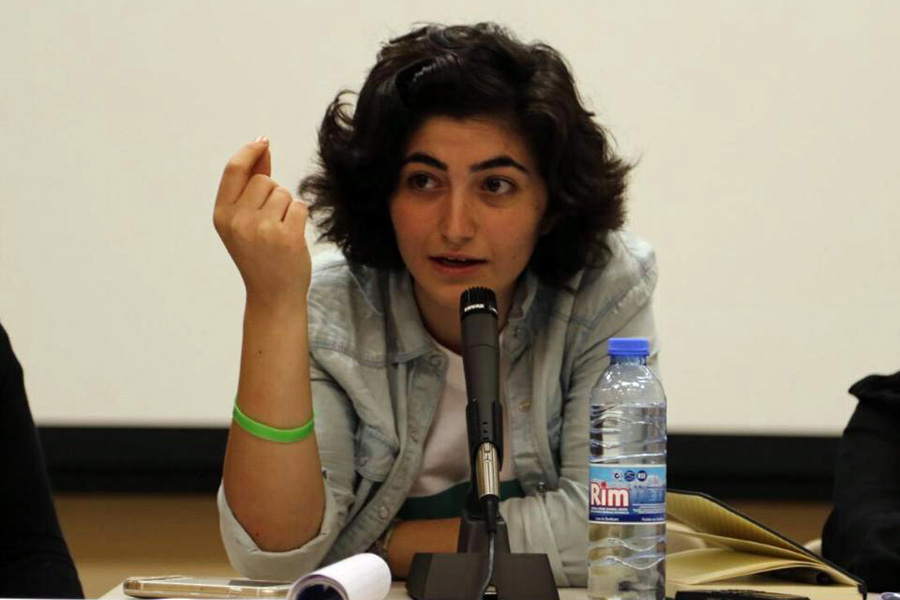
It used to be that ’48 Palestinians had a hard time in the Arab world because there was very little knowledge of the issues Palestinians face inside Israel. Did you find you had to explain very basic things about your status and position in society? Was there any hostility?
I can’t really say about the whole of Lebanese society but the people I encountered and those who invited me had very broad knowledge. The people who participated in the panels were thirsty, they really wanted to know more about what is going on and they were very interested in just listening.
They were very, very sympathetic and supportive and even asked, in an ironic way: are you really here? You exist? Random people we met knew about Urfud, said they had heard a lot about us, and that they supported us.
But to address your question, I didn’t feel afraid. It wasn’t a feeling of fear or alienation. It also didn’t even feel like it was my first time there. The culture was very similar to the Palestinians’ in Haifa, for instance. Even the food is much more similar to ours than even in the Naqab…
Haifa is actually closer to Beirut than it is to the Negev. What were your expectations before going there, about the place itself or connecting to the wider Arab world?
We are very deprived of a lot of the Arab region and our ability to go there; we are deprived of Lebanon. Who gave anyone permission to separate us from our natural environment in the Middle East? Why did I have to feel the whole time that this would be the first and last time [I go to Beirut]? It was the most natural place for me to be, and a natural environment, talking to people, having discussions. Why would anybody deprive me of that?
With everything I imagined, it was even more beautiful when I went there. And I know the political situation in Lebanon is very bad, and yet, you still can’t criticize me for having a romantic view of it.
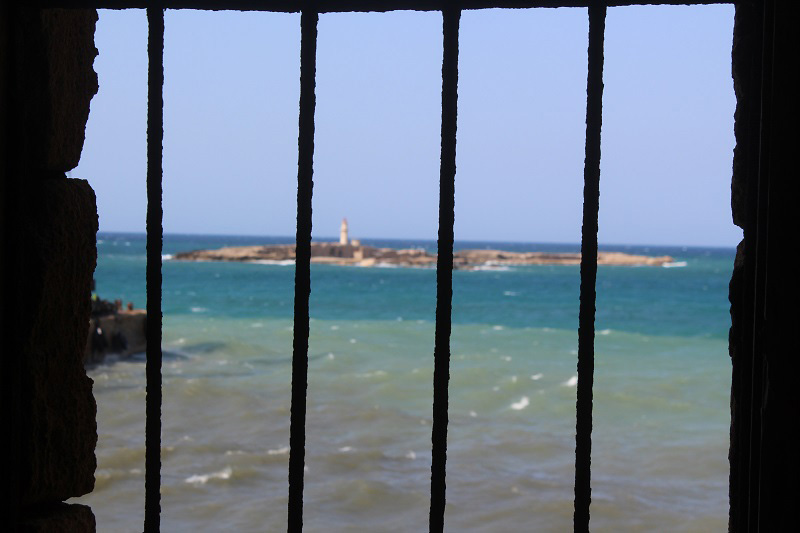
You have described your activism with Urfud as focusing on Israel’s divide-and-conquer tactics of ruling over Palestinians. Lebanon has seen even worse — as far as divisions, how society and politics are divided along ethnic and religious lines. Is that something that you discussed with other activists — in a comparative way?
I encountered activism that is similar to what is taking place here, opposing the divide and conquer policies like here.
The discussions in the American University workshops were about political activism in the West Bank, about Palestinians in ’48, by refugees in Jordan, refugees in Syria, Palestinian refugees in Lebanon, and also local Lebanese activism. It was really important for us Palestinians to look at local Lebanese activism vis-a-vis their government, and to get perspective about how it works in other places.
What was the most unexpected thing that happened to you?
Seeing these people, not somewhere overseas, but in their natural place — in their homes. That was the most amazing moment. And however hard I try, I can’t even imagine things being reversed, that they might see me in my natural place, in my home. I can’t even imagine that they could visit my natural place, here. Because it’s unnatural.
Stop asking me before I start to cry.
What happened when you got back? When Majd Kayyal returned from Lebanon the Shin Bet held him incommunicado for a week. (More on that here.)
I had a three-hour interrogation at the King Hussein Bridge crossing (between Israel and Jordan). They asked me about everything. Where did you go? What did you do?
You told them where you were?
Yes. I also published it on Facebook. The point was to not hide where I was, even specific places. I published everything on Facebook and I also told the interrogator everything. I was honest about every question he asked because I had been in my natural place, meeting with people in a very similar culture with a similar ethnic identity.
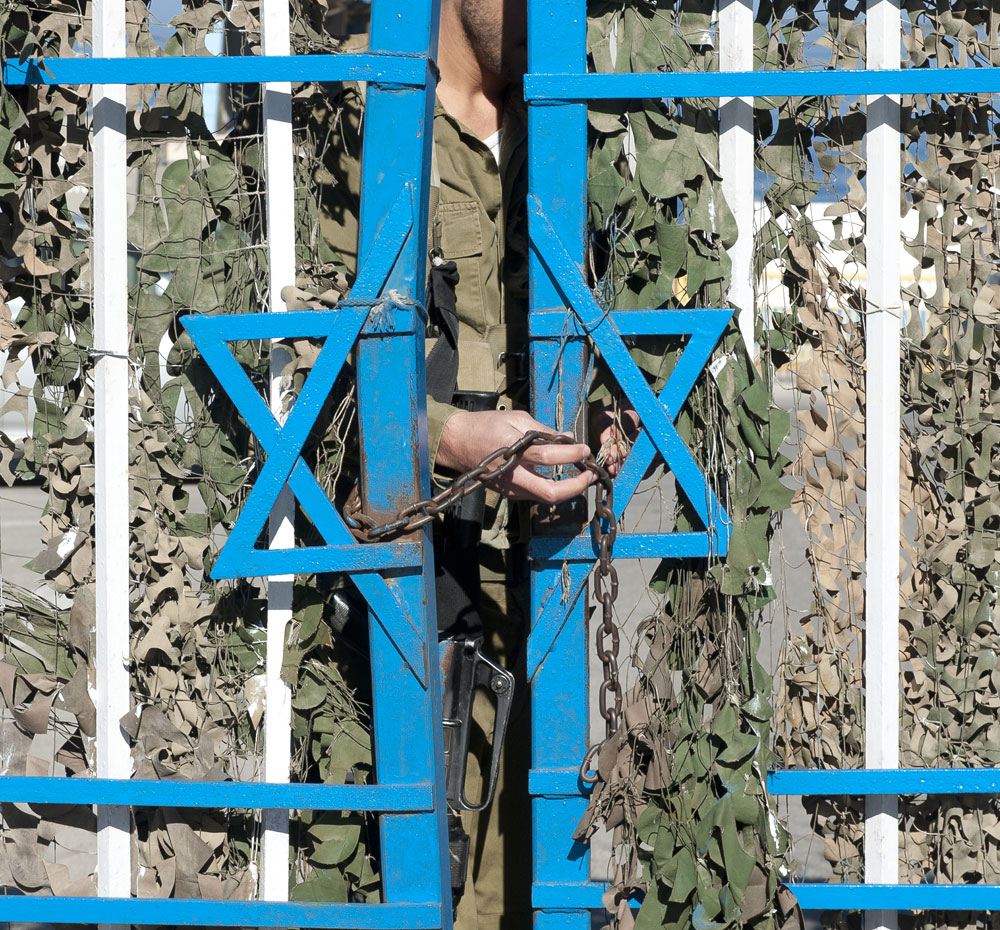
Were you surprised that you didn’t get into any trouble?
Before coming back, I called my mom and told her if you don’t hear from me for a few hours just know that I am crossing the border. But yes, I was surprised that nothing happened.
***
We shift gears. Imposed divisions among Palestinian citizens of Israel have been a hot topic in recent years, as the government has launched public campaign to increase Palestinian Christian enlistment into the army. Pulling in the other direction has been a slowly resurgent Palestinian national identity among Arab citizens of Israel, largely in response to discriminatory policies that highlight and amplify cleavages between Jewish and Arab society.
“As Israeli politics and society shift rightward Palestinian citizens grasp onto their Palestinian heritage and nationality ever more tightly,” Henriette Chacar wrote in +972 last year in her profile of the new generation of Palestinian activists in Israel. “Even those who wouldn’t otherwise be drawn to Palestinian nationalism embrace it as a defense against the parallel radicalization and intensification of Zionist nationalism.”
Most Jewish Israelis have trouble accepting or even acknowledging that Arab citizens of Israel are also Palestinians, however, or that Bedouin Arabs, Christian Arabs and Druze Arabs might also consider themselves to be Palestinian just like their Muslim countrymen. According to Hamdan, that attitude and understanding is the byproduct of Israeli divide-and-conquer tactics of control.
In recent years there have also been a small but growing number of Druze young men who have openly refused to join the Israeli military for reasons of conscientious or political objection and served time in prison. The most famous was Omar Sa’ad, who was sentenced to military prison six times and served 150 days before contracting a serious liver infection and being released.
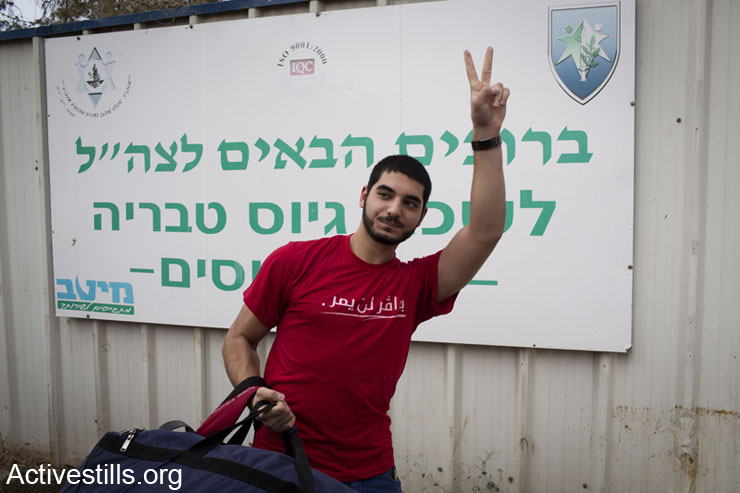
***
How do you identify the differences between the Druze communities here and the Christian and Muslim Palestinians?
The Druze community is divided from the rest [of the Palestinians] because the Israeli system approaches it differently, and the Druze feel they are more special in the eyes of the Israelis.
The Israeli government imposed military service on them in 1956. The Druze education system was separated from the rest of the Palestinian community in 1976, and the local municipalities were also separated from the rest of the Arabs’. Not only that, Israel identified the Druze as a separate ethnic group as well. So there became Arabs, Jews and Druze.
If you go to a community and you want to rule it, you have to divide it into separate groups in order to strengthen your rule.
Tell me about your activism. Describe what Urfud is and what it does as an organization?
There are two aspects. Firstly, we are a young and inclusive feminist refusal movement that isn’t affiliated with any political party, geographic religion or religious group. Secondly, we don’t see refusal as a Druze issue: Urfud concerns the Palestinian community as a whole. That is why our activists are Palestinians from all geographic regions and from all religions.
There’s a lot of talk in Israel these days about creating divisions between Muslim and Christian Palestinians, while trying to get Christian Palestinians to join the army. What is your group’s success rate? How many Druze who would otherwise go to the army do you think are not going?
In the past year and a half since the campaign started, more and more people refused. We have over 70 Druze who approached us, who told us they want to refuse.
Not all of them go to prison. The army gives young Druze options for not serving: medical and mental issues, conscientious objection (which is rarely granted, especially not for men, m.s.o), and for socio-economic reasons. So when a young man sees all of these options, he often prefers to take a psychiatric exemption instead of going to prison. Unless he really wants to make a statement and say I don’t want to do the service because of x, y or z — then that’s a different issue.
We give these options to all of the youths and they can choose whatever option they want. But in the end, we prefer that they refuse by statement, on principle.
The difference between Jews refusing to enlist in the army and Urfud’s activism is that the Jewish Israelis are refusing to serve in their own country’s military. Urfud is refusing to serve in the occupying country’s army.
(Top photo: The Beirut skyline, by Shutterstock.com)

